How Daniel Eun founded Hong Kong’s favorite pocha, OBP
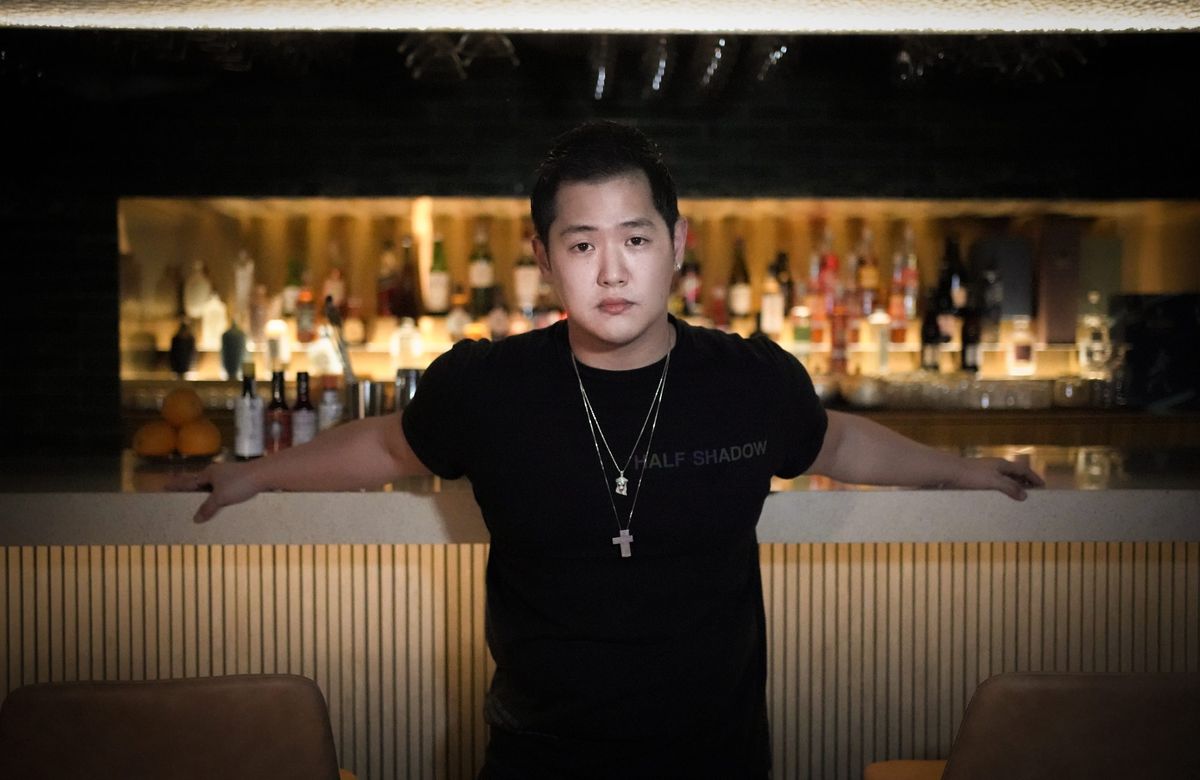
A few minutes every morning is all you need.
Stay up to date on the world's Headlines and Human Stories. It's fun, it's factual, it's fluff-free.
Tucked away in an alley right off Old Bailey Street in Hong Kong’s Central, sits OBP, short for “Old Bailey Pocha.” OBP is a Korean restaurant inspired by nostalgia for Korean sool-jip (술집) and pocha culture.
Established just slightly before the Korean wave washed over the city, OBP’s minimal aesthetics, comforting food and adventurous Korean cocktails are a perfect evening combination, emulating the Korean drinking experience right here in Hong Kong.
TMS spoke with OBP founder Daniel Eun and Chef Junwoo Choi to learn more about the charm of Korean sool-jip culture and OBP’s journey in Hong Kong amid the COVID pandemic.
OBP’s journey in Hong Kong
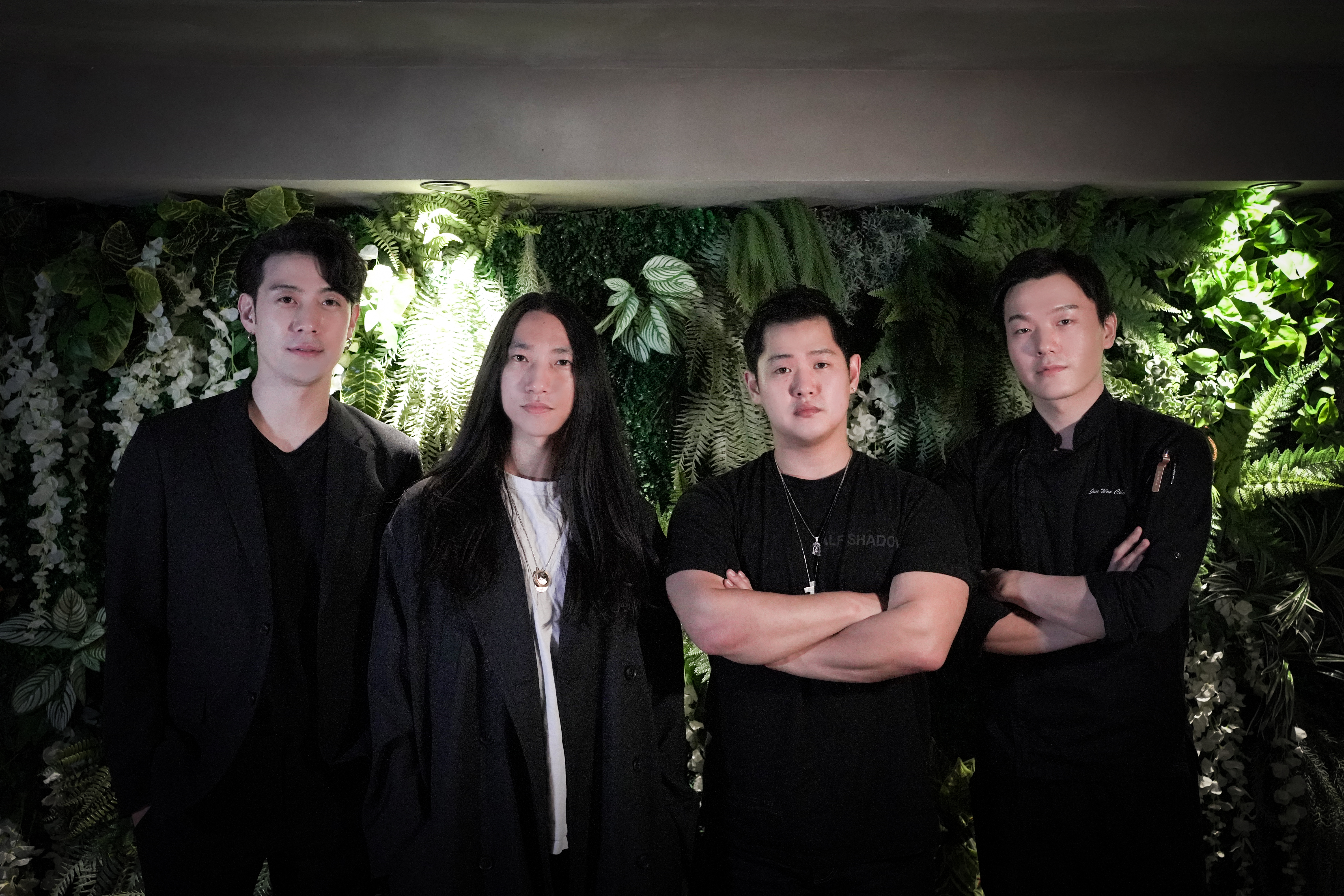
With the OBP team originating from LA and Korea, Eun discovered a need for a place in Central to gather and party – but Korean-style.
“When I first came here to Hong Kong, I would always fly out to Korea to see my family out there,” Eun recalls. “So I never really looked for Korean things, right? And then as I was here like a year, a year and a half in, I asked my friends like, ‘Hey, where do you go to drink? Is there like a pocha around?’ Obviously, there’s stuff out in [the] Kowloon side, right? TST and everything. But there’s nothing in Central – and not like the way that we are used to partying.”
So, in what he describes as a “totally selfish move,” OBP was created with the idea of bringing Korean party and culinary culture to Eun’s own Hong Kong neighborhood.
“I was like, ‘Alright … I’m sure there’s some other people in Hong Kong that want to be at this kind of place,” Eun explains. “So that’s literally how it happened. It was just us bringing in what we wanted.”
But, with the pandemic ongoing, starting up OBP was no easy feat. OBP opened right when the fourth wave hit Hong Kong, forcing the newly-established restaurant to operate in the few hours that lunchtime windows offered during the first few months.
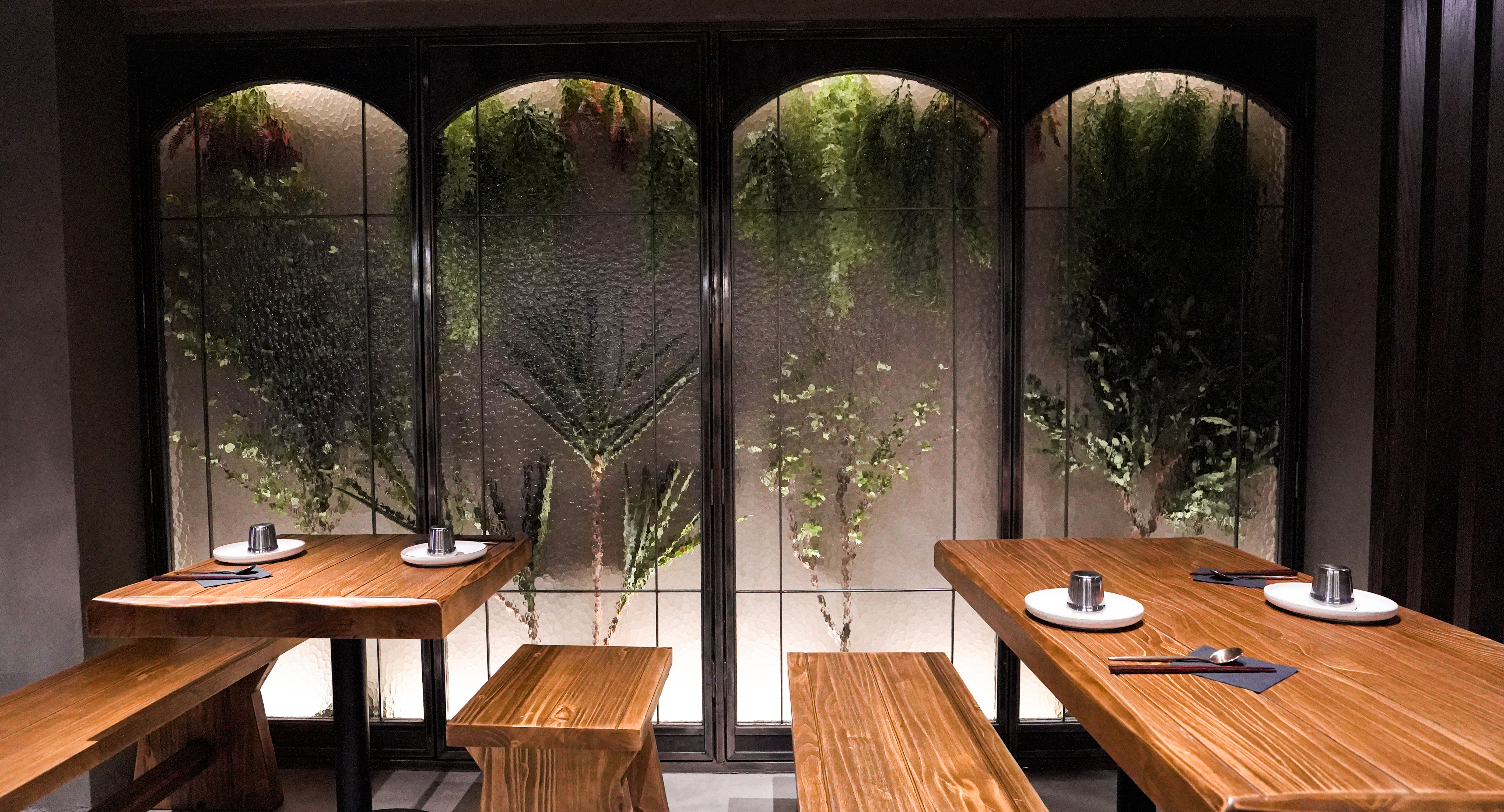
“I think it was a Friday that we had planned to open,” Eun remembers. “It was like, ‘Hey, guys, we’re opening, bring all your friends, 6 p.m., we’re gonna go.’ And then literally at 6 p.m., it was that Wednesday, [the government] was like, ‘Oh, you have to close at 6 p.m.’ We’re like, ‘Wait, what?’ And then we had to do what we could do, you know, open during lunch and this and that and slowly build up from there.”
And recently, with the fifth wave washing over Hong Kong, these struggles have carried on. Despite these challenges, OBP aims to make the best of the situation by continuing to serve customers through lunch service as well as delivery.
“I think every F&B industry now [is having a] hard time for sure, but we have to survive, and we also still want to keep customers eating more Korean food to survive [the pandemic] together,” says Choi.
As a part of the Westside hospitality group, Eun set up OBP alongside managing 11 Westside, Westside Taqueria, Wilshire and Dam:a Noodle Bar. Eun compares managing these projects to having several children – constantly balancing the amount of attention each needs.
“I don’t know, I don’t have children, but I imagine it’s like having children, right?” Eun says. “Like, you have your second one, and you can’t give the same amount of time because the other one still needs attention. And then that one feels bad because you’re giving it less attention and vice versa. So definitely there were growing pains.”
However, Eun has learned to trust his team with operations.
“With every venue, we’re learning, in terms of actual nighttime service, there’s less and less I can do, and usually my attention is required elsewhere. So a lot of it is putting people in positions, people that you trust, and then trusting them to do it. I think that’s another hard part. Learning how to delegate is hard and then also learning to actually let go.”
Through teamwork and problem-solving together through hard times, the close-knit OBP team only grew stronger, building off of each other and pushing through during Hong Kong’s worsening COVID situation. Eun describes the team’s bond and experience growing together as something “insanely special” to him.
“You know, being able to have that kind of connection with everybody and seeing everyone grow, too. A lot of the staff were new to F&B when they started, so they didn’t know anything,” Eun says. “And now, seeing them really take positions of leadership, especially now during the fifth wave with a lot of things getting hard again, to see them take leadership roles and take care of their team members as well, that’s huge for me.”
Chef Choi finds this sense of togetherness also permeates the experience for customers. One of the highlights of his career at OBP has been seeing people getting together and having a genuinely good time.
“I think it’s when the customers, when they get drunk and then they’re dancing and they’re even singing with our Korean traditional BGM – we don’t really turn on Kpop, we turn on Korean older ballads and old Kpop … We drink together, sharing culture. So I really like that people come to OBP and really enjoy the moment and Korean culture,” adds Choi.
The Korean drinking experience
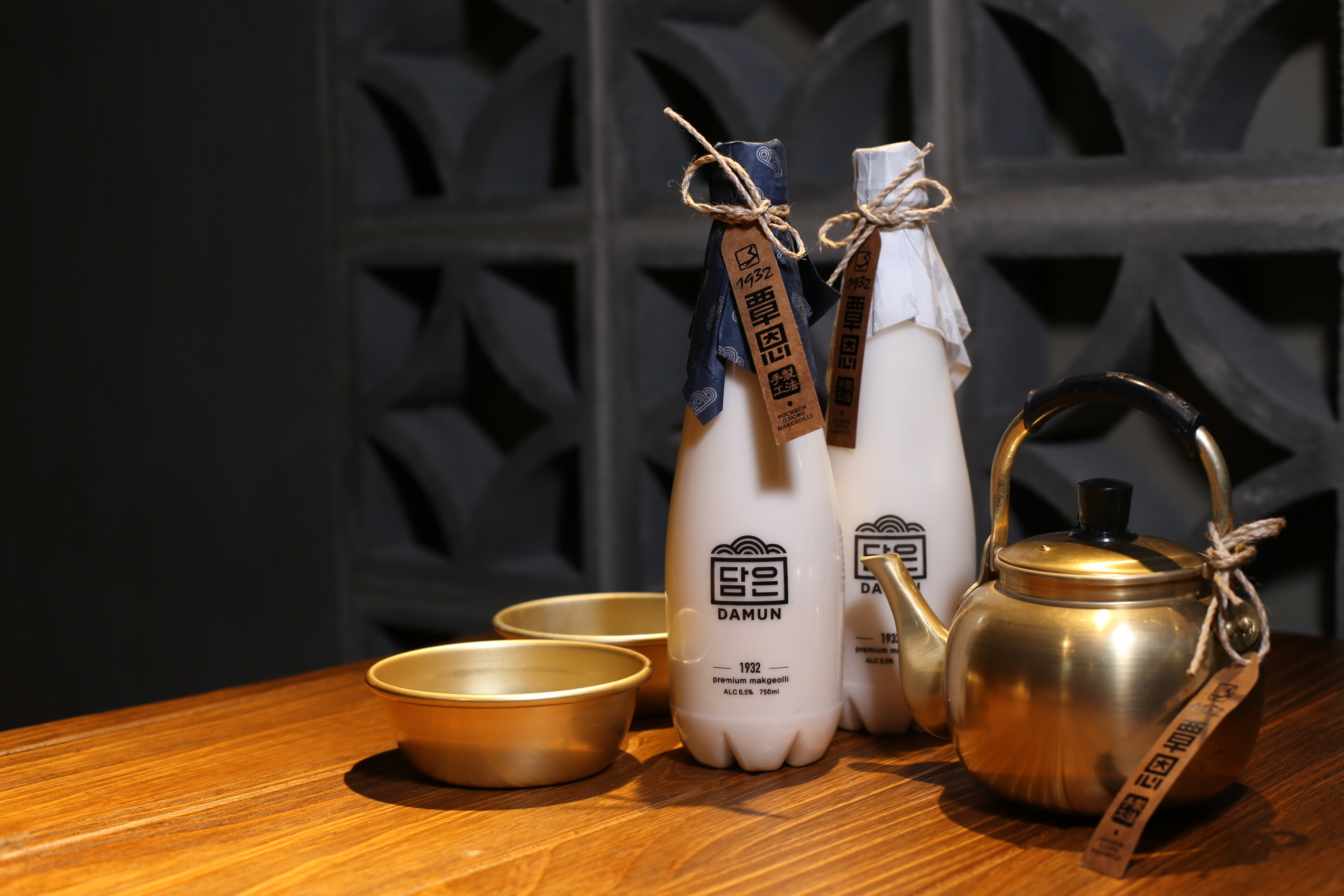
A sool-jip is essentially a Korean bar or “alcohol house,” and the “pocha” is a favorite place to grab a bite – usually a street food stall. Both of these are inspirations for the OBP concept.
“OBP menus are inspired from the Korean ‘pocha,’ which we call ‘pojangmacha,’ which is a vendor in a street or other public places that serves Korean comfort food or market food,” explains Choi.
Chef Choi further compares it to dai pai dong (the street food stalls of Hong Kong) or the traditional Japanese izakaya. Whether alone or with friends, pochas are the go-to place Koreans seek out to drink and have a good time.
OBP emulates the unique Korean drinking experience by serving authentic Korean drinks and the comfort foods they pair well with. A typical combination that Koreans like to drink is somaek, a cocktail of soju and beer mixed together (usually with the ratio being 3:7, respectively). The refreshing flavor of beer alleviates the bitter taste of the soju in this classic combo.
OBP also serves makgeolli, a sparkling rice wine with a slightly sweet and tangy aftertaste that Koreans traditionally drink on rainy days. To complete the experience, OBP serves drinks in traditional pottery and from a golden nickel pot.
If you’ve watched Korean movies and shows, you’ll definitely recognize some of the dishes on OBP’s menu. From the popular chimaek, which is the combination of Korean fried chicken and beer, to makgeolli and Korean pancakes (called jeon), there are many options for food pairings that encapsulate the typical Korean drinking culture.
“I really recommend the seafood kimchi pancake with our rice wine (makgeolli),” says Choi. “And personally, I love jjambbong. The Korean chili paste we make with a secret recipe. We make the taste ourselves and infuse beef fat, add fresh vegetables, shrimp, also seafood, and stir fry with our secret chili paste. We add fish soup base with beef brisket as well. It’s perfect for cold weather and even summer weather as well.”
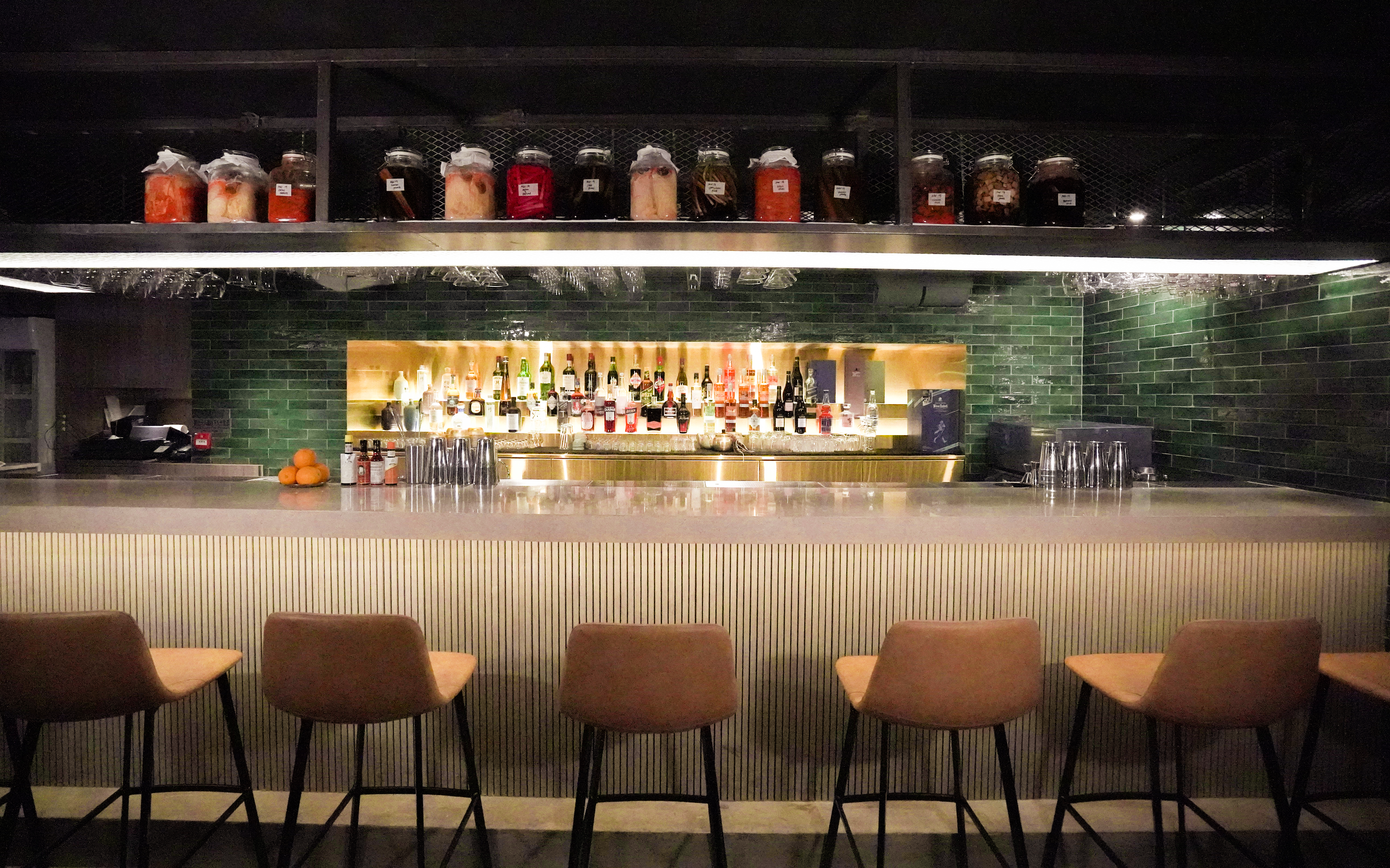
The experience at OBP is highly reminiscent of what you’d get in Korea. Especially as OBP is riding on the Korean wave, the authenticity of Korean food and culture is intact at OBP.
“We didn’t do anything to cater necessarily to the Hong Kong market,” says Eun. “The target audience was definitely Koreans and people who have been to Korea or to KoreaTown.”
In addition to founding OBP, Eun is also the beverage director and curates the restaurant’s unique cocktail menu. He believes that a good cocktail is made from the memories and experience of a fun night rather than the drink itself.
“I think what makes a great cocktail is – it’s a dialogue, right? Between the bartender and the the guest,” says Eun. “Because not every person likes every cocktail, right? You can make the most perfect negroni, but if that person hates negronis, it doesn’t matter. And so I think a lot of that is part of it. It’s not just the ingredients and the technique, which obviously have to be perfect, but it’s also the atmosphere, the conversations that you’re having, the mood that everyone’s in and stuff like that.”
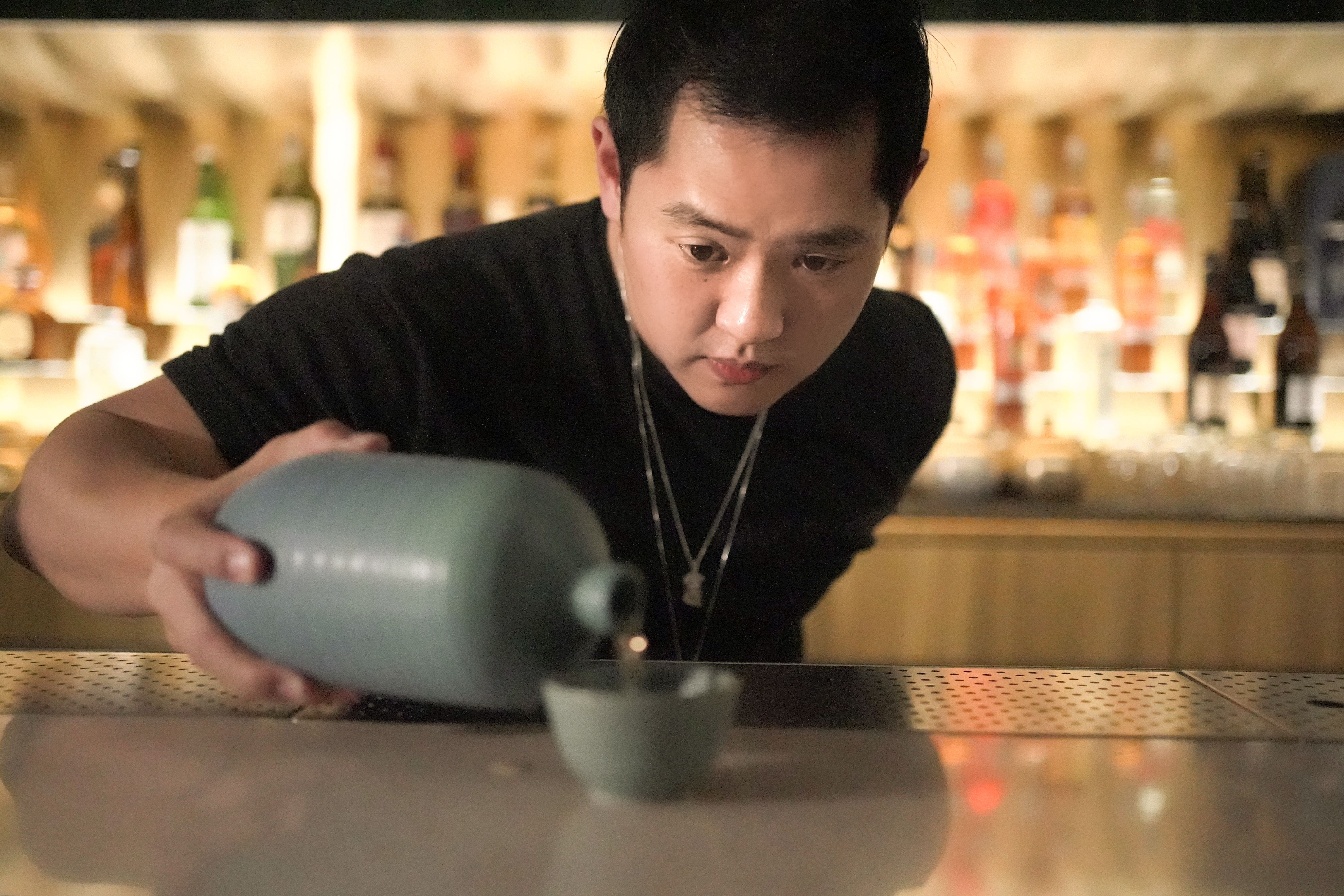
Eun experiments a lot with the cocktail menu with this philosophy in mind. Incorporating Korean ingredients and elements into cocktails – it’s an innovative process.
“I come from American bartending, so we have very set ratios and recipes and inspirations, explains Eun. “And what I realized was, because I want to bring in Korean elements of Korean flavors and things that I was nostalgic for, when dealing with those flavors, all of a sudden those ratios weren’t working for the recipes. So it’s like, not only am I messing with new ingredients in terms of cocktails, it’s completely different ratios and recipes, too.”
This experimental process and Eun’s artistry are responsible for unique cocktails like “After the After Party,” which combines Damun makgeolli, banana bourbon, PX sherry, Korean pear juice, ginger and cardamom.
What’s next for OBP?
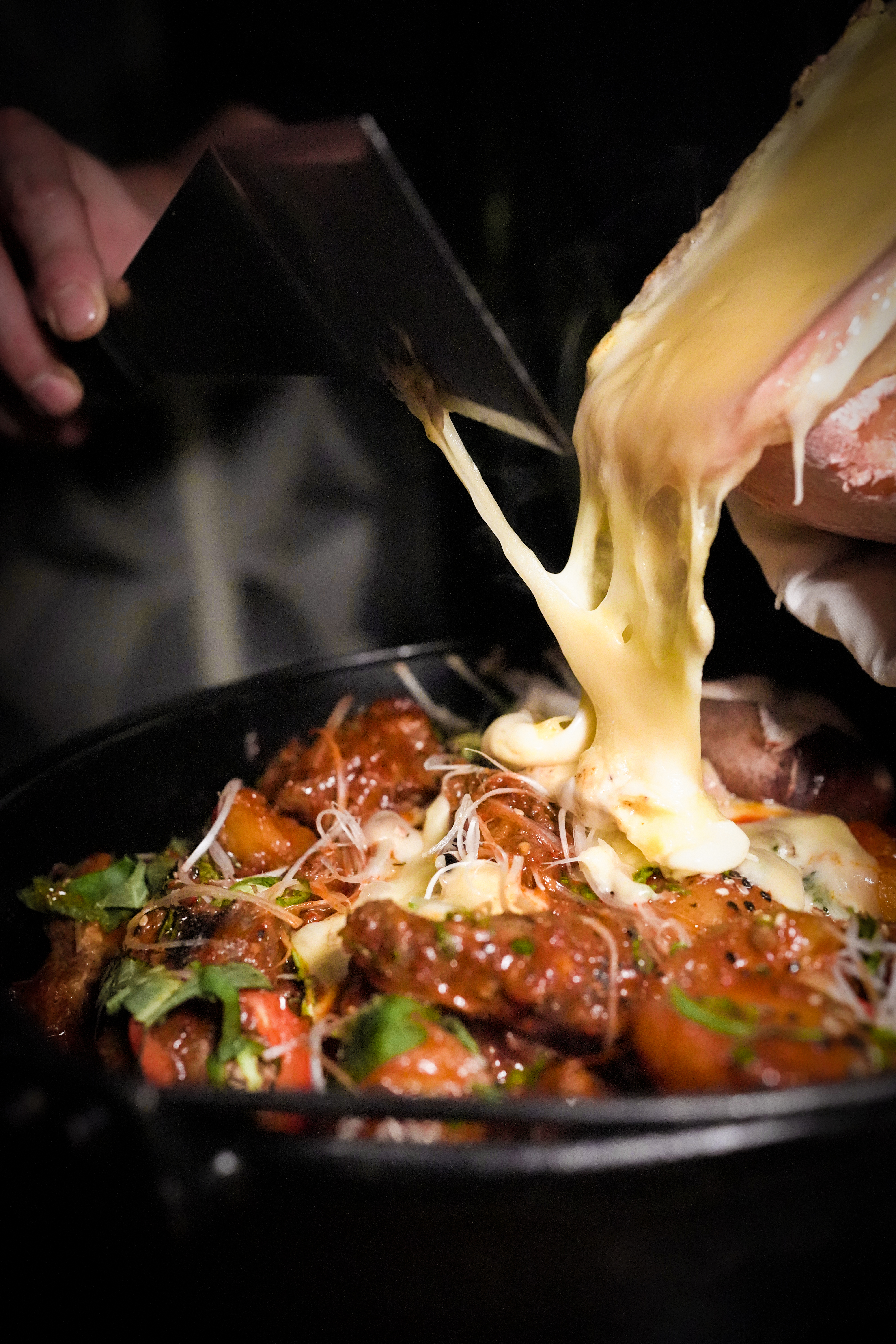
As OBP continues to navigate the fifth wave in Hong Kong, it is still looking forward to new possibilities and opportunities for growth. Chef Choi gave TMS a sneak peek into some new menus we can look forward to.
From traditional Korean ginseng chicken soup to a McDonald’s and Korean KFC-inspired “shaking” chicken (which will let customers shake OBP’s Korean fried chicken with a special seasoning made up of Korean chili powder and cayenne pepper), the creative process at OBP is still hard at work.
“Since we opened, we did the Korean traditional menu, but we will do more fusion menus … like skewers. So we’re going to do bulgogi beef skewers and also ox-tongue skewers with our garlic mayo. We make kimchi ourselves as well, so our kohlrabi kimchi we’ll be serving for a [palate] cleanser. So there’s more fusion things we’re bringing up for new menus in the future,” says Choi.
As a Type D restaurant, OBP allows up to four people per table (where all customers have recorded their visit with the LeaveHomeSafe app and presented proof of receiving the first dose of vaccination) until 6 p.m., so keep this in mind. You can also order delivery from OBP through Foodpanda or Deliveroo.
Is your business doing something cool that you want to show off? Get in touch at hello@themilsource.com




Comments ()